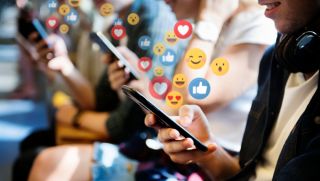Social Media
The Unseen Perils of Social Media
How to protect your mental health in the digital age.
Posted June 6, 2024 Reviewed by Tyler Woods

As Christian Lous Lange wisely noted, "Technology is a useful servant but a dangerous master," highlighting the dual nature of social media and the importance of managing their influence on our lives. As these platforms dominate our daily interactions, their impact becomes increasingly significant. Recent news has illuminated the manipulative power of social media algorithms, making this topic both relevant and essential for public awareness. These algorithms, designed to maximize user engagement, often exploit emotional triggers, leading to significant mental health implications.
The Problem
Recent reports have brought to light how social media algorithms are designed to maximize user engagement, often at the expense of mental health. These algorithms curate content likely to keep users hooked, sometimes by exploiting their emotional triggers. For instance, a recent report by the Wall Street Journal revealed that platforms like Facebook and Instagram can exacerbate feelings of anxiety, depression, and loneliness among users, especially teenagers.
Algorithmic Manipulation
Social media algorithms are tailored to prioritize content that elicits strong emotional reactions. This often means that controversial, sensational, or fear-inducing posts are more likely to appear on users' feeds. The constant exposure to such emotionally charged content can lead to heightened stress and anxiety levels. According to a report by the Royal Society for Public Health, social media use is linked to increased levels of anxiety, depression, and poor sleep among young people. Their study found that the fear of missing out (FOMO), often exacerbated by social media, significantly contributes to anxiety and stress.
Echo Chambers Leading to Confirmation Bias
Algorithms often create echo chambers by displaying content that aligns with users' existing beliefs. This phenomenon reinforces negative thought patterns and contributes to polarized thinking. A report from the Proceedings of the National Academy of Sciences emphasized that social media plays a significant role in creating these echo chambers. The resulting increased isolation and misunderstandings in social contexts can be profound. Similarly, a report by the Guardian highlighted how algorithms on platforms like Facebook and Twitter exacerbate these echo chambers, intensifying political and social divides. This limited exposure to diverse perspectives leads to a narrower and more biased worldview.
Comparison and Self-Esteem
Platforms like Instagram are known for fostering a culture of comparison. The constant exposure to curated, idealized images can negatively impact self-esteem and body image. A survey conducted by the Pew Research Center found that many teenagers feel pressured to present a perfect image on social media. This pressure may lead to anxiety, depression, and eating disorders. The survey also highlighted that the more time teenagers spend on social media, the more likely they are to report unhappiness and dissatisfaction with their lives.
Distraction and Productivity
Research suggests that social media can lead to significant distractions, impacting productivity and cognitive function. The constant need to check notifications and updates can disrupt concentration and reduce the ability to complete tasks efficiently. Frequent interruptions can significantly reduce productivity and increase stress levels. Constant switching between tasks—which happens often while using social media—can lead to cognitive overload, making it harder to focus and process information effectively.
The Impact on Adolescents
Adolescents are particularly vulnerable to the effects of social media algorithms due to their developmental stage. The brain matures during adolescence, and the prefrontal cortex, responsible for decision-making and impulse control, is not fully developed. This makes teenagers more susceptible to compulsive social media use and the emotional highs and lows it can provoke. A study published in JAMA Pediatrics found that adolescents who spend more than three hours per day on social media may be at heightened risk for mental health problems, particularly internalizing problems such as anxiety and depression. The study highlighted that the constant exposure to idealized images and the pressure to gain social approval can significantly affect adolescents' self-esteem and mental health.
Ways to Mitigate the Negative Effects of Social Media
To mitigate the negative effects of social media, several strategies can be employed to foster a healthier digital environment. First, promoting digital literacy is crucial. Users, especially younger people, should be educated about how social media algorithms manipulate content to keep them engaged. This awareness can encourage critical thinking and more mindful consumption of digital content. Encouraging regular breaks from social media, or "digital detoxes," can help reduce dependency and mitigate anxiety and stress associated with constant connectivity. Additionally, promoting real-life interactions and physical activities can provide a healthy balance and reduce feelings of isolation.
Developing healthy social media habits, such as setting time limits and being mindful of emotional responses while using social media, can also be beneficial. In addition, seeking out a diversity of perspectives can help break echo chambers and promote a more balanced worldview. Lastly, integrating practices like mindfulness and meditation can help users manage stress and stay grounded despite the constant flow of information.
Remaining Vigilant
Social media algorithms wield considerable influence over mental health by exploiting emotional triggers to keep users engaged. This can lead to heightened anxiety, depression, and other mental health challenges, particularly among young users. We can counteract their adverse effects by exploring the complexities of these algorithms and fostering digital literacy, promoting healthy social media practices, and advocating for ethical platform design. As we move into the digital age, we must remain vigilant about the tools we utilize and their potential effects on our well-being, ensuring that technology enhances rather than hinders our mental health.




